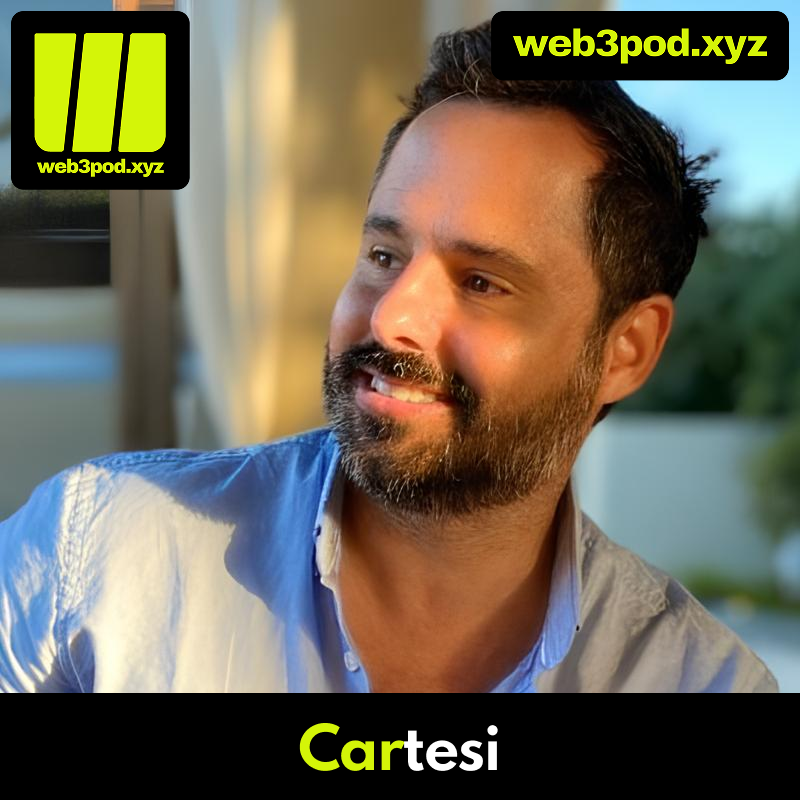From basement trades to institutional trust: Norman’s bold leap into digital finance

In episode 155 of Web3 with Sam Kamani, Norman Wooding shares how he co-founded SCRYPT after trading half a billion dollars in crypto from a basement during the pandemic. His story is one of grit, trust, and vision.
When Norman Wooding began exploring Bitcoin in university, few could have predicted that he would one day co-found a company helping financial institutions securely access digital assets. But that’s exactly what happened. In this episode, Norman pulls back the curtain on the founding of SCRYPT, a Switzerland-based crypto infrastructure company trusted by institutions across Europe and beyond.
And it all began in a basement.
During the peak of the pandemic, Norman and his co-founder Sylvan executed $500 million in trades with minimal infrastructure. That experience wasn’t just about capital—it was a trial by fire. They learned to operate lean, build quickly, and navigate the volatile waters of crypto with precision.
Starting small, thinking big
SCRYPT wasn’t born out of a grand VC-funded vision. It started with a belief: that institutions would soon need the same level of access, security, and compliance in crypto that they’ve long expected in traditional finance.
Norman and his team began by bootstrapping—no flashy launches, no hype. Just execution. Their approach? Focus on three things: liquidity, custody, and staking. These became the core pillars of SCRYPT’s offering, designed specifically for institutional clients.
Building trust in a trustless industry
Trust is a paradox in crypto. The technology promises decentralization and autonomy, but institutional clients still want to know who they’re working with. Norman addresses this head-on.
From the beginning, SCRYPT prioritized compliance and transparency. They built relationships slowly, made trust a priority, and understood that the real value wasn’t just in product features, but in reputation.
Marketing to institutional clients meant playing a different game. “You don’t sell,” Norman notes. “You build credibility.” That meant rigorous due diligence, consistent delivery, and a relentless focus on security.
The regulatory maze
Crypto regulation isn’t just a challenge—it’s a moving target. Norman discusses the complexity of navigating multiple jurisdictions while scaling operations. For SCRYPT, this meant staying nimble, investing in legal infrastructure, and being proactive rather than reactive.
Norman also reflects on the broader political climate and its effect on innovation. In his view, overly rigid regulation risks pushing innovators away from key markets. It’s a concern for the entire industry.
Innovation grounded in reality
Despite the challenges, Norman remains optimistic about crypto’s future—especially in regions like the Middle East and Asia, where innovation is moving faster than policy. He sees increasing demand for compliant, scalable infrastructure, and believes the next wave of growth will come from firms that can bridge traditional finance and decentralized technologies.
SCRYPT is positioning itself right in that middle ground.
What sets Norman apart
There’s a quiet confidence in Norman’s journey. He didn’t just jump into crypto—he studied it, lived it, and built a business around understanding its nuances. He emphasizes autonomy, clarity, and the long game. For him, success in this space isn’t about riding hype cycles—it’s about building systems that last.
Key takeaways:
- Building institutional-grade crypto infrastructure starts with trust, not tech alone.
- Bootstrapping forces clarity and discipline—traits that served SCRYPT well.
- Institutions are cautiously entering the space, but they demand rigorous compliance.
- Regulation remains a double-edged sword: necessary, but often stifling.
- The future belongs to firms that can bridge speed, trust, and global accessibility.
🎧 Listen to the full episode: Spotify Apple Podcasts




